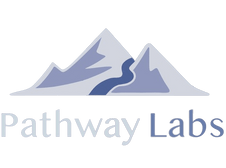In the realm of education, student agency has emerged as a crucial concept, representing a shift from traditional teacher-centered approaches to a more student-centered learning environment. Student agency refers to the capacity and willingness of students to take ownership of their learning, make choices, set goals, and drive their educational journey.
This empowers students to become active participants in their education, fostering a sense of autonomy, self-efficacy, and lifelong learning skills. In this post, we will explore the importance of student agency and provide insights into how educators and schools can nurture and cultivate it.
Understanding Student Agency
Student agency is not a mere buzzword; it encompasses the idea of students becoming active agents in their learning process. It involves providing students with the tools, strategies, and opportunities to take charge of their education, voice their opinions, and engage in meaningful decision-making. By developing agency, students become self-directed learners, capable of setting goals, making choices, and taking responsibility for their academic growth.
Benefits of Student Agency
There are a number of benefits to increased student agency among students, but there a few key elements that make it important for schools to prioritize:
Increased motivation
When students have agency, they feel a sense of ownership and relevance in their learning, which fuels intrinsic motivation and a desire to excel. If a student isn’t motivated throughout their education, they may not be fully vested in their success at your school.
Enhanced engagement
Empowering students to make choices and explore their interests fosters deeper engagement with the curriculum, leading to higher levels of retention and understanding. This can also be a great way for students to further explore their skills and topics they’d like to dive deeper into.
Development of critical skills
Student agency promotes the development of skills such as problem-solving, critical thinking, collaboration, and self-reflection, which are vital for success in the 21st-century world. These types of critical thinking skills will support students in years to come beyond their education.
Improved outcomes
Students with agency are more likely to achieve academic success, as they actively seek out resources, seek help when needed, and persist in the face of challenges. Not only does this benefit students, but it also helps schools maintain the quality of their programs and reputations.
Nurturing Student Agency
Student feeling agency is not something that happens overnight, unfortunately. Schools must do a good job at continually nurturing this agency among its students. There a number of ways school can do this:
Create a supportive classroom culture
Establish a safe and inclusive learning environment where students feel comfortable expressing their ideas, taking risks, and sharing their perspectives. By creating a supportive environment in the classroom, you welcome discussion and sharing of different ideas and perspectives.
Foster meaningful relationships
Build strong teacher-student relationships based on trust, respect, and open communication. Get to know your students individually, understand their interests, strengths, and challenges, and provide personalized guidance and support. One way you can do this is by implementing a student information system, like MyPath, that can streamline communication with students.
Promote choice and autonomy
Offer students choices within the curriculum, assignments, projects, and assessments. Encourage them to select topics of interest, design their learning paths, and engage in self-assessment and reflection. By allowing students to choose their own paths and programs, you can help them feel ownership of their education.
Provide authentic learning experiences
Connect learning to real-world contexts and encourage students to apply their knowledge and skills in practical situations. Incorporate project-based learning, inquiry-based approaches, and opportunities for student-led initiatives. Hands on learning experiences are proven to be some of the best ways to educate students in their chosen fields
Reflection and Goal Setting
Regular reflection is an integral part of student agency. Encourage students to reflect on their learning experiences, identify their strengths, areas for improvement, and set goals for growth. This reflective practice allows students to take ownership of their progress and make informed decisions about their learning path. Provide guidance and support in setting realistic and achievable goals, and encourage students to monitor their progress regularly.
Collaboration and Community Engagement
Encourage collaborative learning experiences that promote student agency. Collaborative projects and group activities provide opportunities for students to work together, negotiate ideas, and share responsibilities. This not only enhances their communication and teamwork skills but also allows them to learn from one another's strengths and perspectives.
Additionally, encourage students to engage with their communities. By connecting classroom learning to real-world issues, students can develop a sense of agency in addressing local or global challenges. Encourage them to identify problems, propose solutions, and take action. This could involve community service projects, advocacy initiatives, or participating in events that promote social awareness and positive change.
Cultivating Growth Mindset
Foster a growth mindset culture in the classroom. Emphasize the idea that intelligence and abilities can be developed through effort and perseverance. Encourage students to embrace challenges, view mistakes as learning opportunities, and cultivate a positive attitude towards their own abilities. By promoting a growth mindset, students develop resilience, a sense of agency, and a willingness to take risks in their learning journey.
Challenges with Student Agency
Implementing student agency may come with challenges such as curriculum constraints, time limitations, and varying student readiness levels. To overcome these obstacles, educators can collaborate with colleagues, seek professional development opportunities, and leverage technology to create personalized learning experiences.
Conclusion
Student agency is a transformative approach to education that empowers students to become active participants in their learning journey. By fostering a sense of ownership, autonomy, and self-efficacy, educators can unlock the potential within each student and cultivate lifelong learners. As we continue to reshape education for the 21st century, prioritizing student agency is essential for preparing students to thrive in a rapidly evolving world.
By fostering student agency, educators create an environment where students develop essential skills, a sense of responsibility, and the confidence to navigate their academic and personal lives. As school administrators, it is your responsibility to provide the necessary support, resources, and opportunities for students to cultivate their agency, enabling them to thrive in an ever-changing world. If you’re looking for ways to improve your school operations and foster this student agency, click here to learn more about how MyPath can help.

